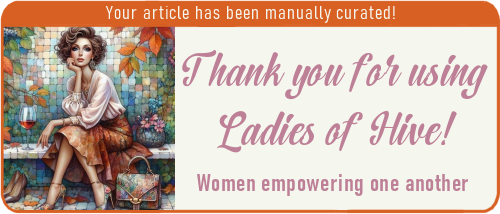Hello, hello, friends!
My four-year-old son asked me yesterday why the sky is blue. And then, seconds later, he wanted to know why cars can't fly.
I was silent for a moment. I half-remembered the first answer from a high school physics class, but the second caught me completely off guard.
Before, that moment of not knowing would have generated a small pang of frustration, as if it were my obligation as a mother to have all the answers.
However, that's not the case. No one is born knowing everything, nor do they ever learn everything. Plus, I don't always have to know everything, and actually, it's better for them if I don't.
The important thing isn't to know everything. That would be exhausting and impossible. Not to mention boring.
What's really important, and what I want to teach them, is knowing where to look for the information we need.
When I couldn't explain the blue sky very well, I said, "I don't know exactly, but we can look it up together." I got out my tablet, Googled it, and we watched a short video for kids and learned about light and the atmosphere.
That process of searching together was much more valuable than if I had just given him a memorized answer. I showed him that knowledge is out there, waiting to be found.
This has made me see the difference between having an imaginative mind, which my children have in abundance, and a problem-solving mind.
If I don't know something, I don't dwell on frustration. I search for a solution to the problem, and in the process, I learn. Turning an unanswered question into a mini-investigation exercise is a practical problem-solving exercise.
I show them that doubts aren't dead ends, but starting points. That it's okay to say "I don't know," as long as what follows is "...but let's find out."
You should never be ashamed of saying you don't know something. That's an opportunity to learn something.
Because every day we should try to learn something new. This is the most important part. Their endless "whys" aren't an interrogation, they're an invitation.
They force me to stop and question things I take for granted. Thanks to them, I've learned about butterfly metamorphosis, cloud types, and how traffic lights work.
They remind me that learning never ends. By admitting I don't know everything, I become their partner in discovery, and that's a much stronger and more honest bond than just being their personal encyclopedia.
Their curiosity is the best reminder that it's never too late to keep learning.
Versión en español
Buenas, buenas, amigas!
Mi hijo de cuatro años me preguntó ayer por qué el cielo es azul. Y luego, segundos después, quiso saber por qué los autos no pueden volar.
Me quedé un momento en silencio. La primera respuesta la medio recordaba de una clase de física del instituto, pero la segunda me pilló totalmente desprevenida.
Antes, ese momento de no saber me habría generado una pequeña punzada de frustración, como si fuera mi obligación como madre tener todas las respuestas.
Sin embargo, no es así. Nadie nace sabiéndolo todo, ni lo aprende nunca todo. Además, es que no tengo que saberlo todo siempre, y que en realidad, es mejor para ellos que no sea así.
Lo importante no es saberlo todo. Sería agotador e imposible. Además de aburrido.
Lo que realmente vale, y lo que quiero enseñarles, es a saber dónde buscar la información que necesitamos.
Cuando no supe explicar bien lo del cielo azul, le dije: "No lo sé con exactitud, pero podemos buscarlo juntos". Busqué el tablet, lo busqué en Google y vimos un vídeo corto para niños y aprendimos sobre la luz y la atmósfera.
Ese proceso de buscar juntos fue mucho más valioso que si le hubiera soltado una respuesta memorizada. Le demostré que los conocimientos están ahí fuera, esperando a que demos con ellos.
Esto me ha hecho ver la diferencia entre tener una mente imaginativa, que mis hijos tienen de sobra, y una mente resolutiva.
Si no sé algo, no me detengo en la frustración. Busco una solución al problema y, en el proceso, aprendo. Convertir una pregunta sin respuesta en una pequeña investigación es un ejercicio práctico de resolución.
Les muestro que las dudas no son callejones sin salida, sino puntos de partida. Que está bien decir "no sé", siempre que lo que siga a esa frase sea un "...pero vamos a averiguarlo".
Nunca debe avergonzarse por decir que desconoce algo. Esa es una oportunidad de aprender algo.
Porque todos los días debemos tratar de aprender algo nuevo. Esta es la parte más importante. Sus interminables "por qué" no son un interrogatorio, son una invitación.
Me fuerzan a detenerme y a cuestionar cosas que doy por sentadas. Gracias a ellos, he aprendido sobre la metamorfosis de las mariposas, los tipos de nubes y cómo funcionan los semáforos.
Ellos me recuerdan que el aprendizaje no termina nunca. Al admitir que no lo sé todo, me convierto en su compañera de descubrimiento, y eso es un vínculo mucho más fuerte y honesto que el de ser solo su enciclopedia personal.
Su curiosidad es el mejor recordatorio de que nunca es tarde para seguir aprendiendo.




